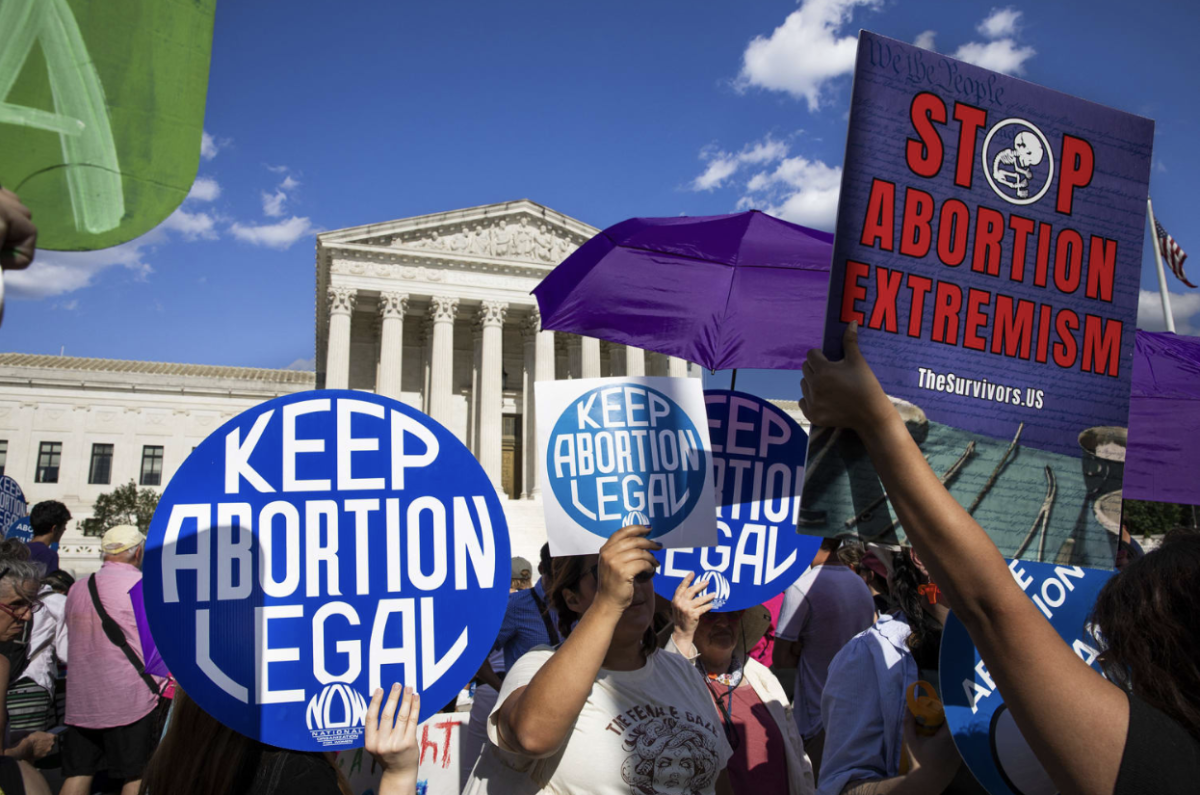After Roe v. Wade was overturned, numerous women lost access to abortion care they desperately needed as their pregnancies put their lives in jeopardy. In 2023, Meagan, a woman in Wisconsin, was one of many to have this life-altering experience.
Meagan’s pregnancy was supposed to be routine. She had her nursery set up and was happily awaiting her future child. She later learned that her baby had a fetal anomaly that would end its life. Additionally, according to ABC News she had a placenta previa, “where her placenta covered her cervix” which meant that her own life would be at risk every day her pregnancy continued.
ABC News says, “At the time, Wisconsin had a total abortion ban in effect that only allowed exceptions to save the life of the mother, but the law required three doctors to approve the abortion.” Meagan later received care out-of-state, which took unnecessary time to be set up.. She had to travel to receive care and did not have any access to her support system in Wisconsin during this heartbreaking time. If Meagan had been going through her pregnancy complications before 2022, she would have had access to the healthcare she deserved in her own state. Due to the overturning of Roe v. Wade, she lost this important right.
In 2022, a case by the name of Dobbs v. Jackson Women’s Health Organization reached the Supreme Court. The case concerned a law that the state of Mississippi had passed, stating that abortions after 15 weeks of pregnancy are prohibited. During this case, the Supreme Court overturned Roe v. Wade, with Justice Alito writing in the majority opinion of the Court, “The Constitution makes no reference to abortion, and no such right is implicitly protected by any constitutional provision.”
Now, 13 states have a total ban on abortions and 10 states have no exceptions for rape or incest. While these states may have an exception for the life of the mother, the increasing threat of prosecution for physicians who perform abortions mean that women like Meagan cannot get the life saving treatment they desperately need, and these delays in care can sometimes lead to the death of innocent women.
The decision in Dobbs v. Jackson Women’s Health Organization is perhaps the first time a fundamental constitutional right has been taken away. Many have noted that several other cases who used the same or very similar logic to Roe v. Wade have not been overturned, such as Griswold v. Connecticut (1965) and Obergefell v. Hodges (2015). Furthermore, cases that use this logic often concern marginalized groups such as women, people of color, and the LGBTQ+ community, as at the time of the writing of the Constitution, these groups were not taken into account. This makes Justice Alito’s claim that rights must be “deeply rooted” in American history null and void, as the only rights that concerned the founding fathers were their own–the rights of wealthy white men.
So, how did this all come to be? Jane Roe is known across the United States, but what about the name Norma McCorvey?
In 1969, Norma McCorvey became pregnant and decided she wanted an abortion. But in her home state of Texas, abortion was illegal except if the mother’s life was in danger. She sought the help of lawyers Linda Coffee and Sarah Weddington who formulated a class-action lawsuit against Henry Wade, the district attorney of Dallas County, Texas. They argued that the Texas abortion laws breached her right to privacy as protected by the First, Ninth and Fourteenth Amendments.
By the time the case reached the Supreme Court in 1973, McCorvey had given birth and put the baby up for adoption. However, the result of the case was far more important. In a 7-2 landmark decision for Jane Roe, the Supreme Court found that anti-abortion laws violated the constitutional right to privacy that is guaranteed to all American citizens. In the years since 1973, the Supreme Court had continuously reaffirmed Roe v. Wade in several other cases regarding abortion such as Planned Parenthood v. Casey (1992) and Whole Woman’s Health v. Hellerstedt (2016).
Yet the well-established right to an abortion was still taken away, causing innumerable women unnecessary hardship or loss of life. Losing this constitutional right is putting into question numerous other aspects of women’s healthcare, such as access to contraception. The future is bleak for women’s healthcare with the election on the horizon, and all we can hope for is for the people in power to understand what they are doing.





